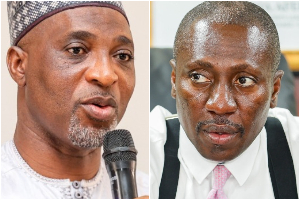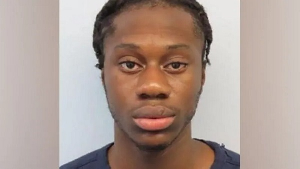It is very imperative for us to take a Peaceful Journey as a nation after eight months of wonderful and tortuous Pink sheet journey .The pertinent question that comes to mind is “What is next after the Verdict”. As nation that has reputed itself as a blue print of democracy in Africa, we ought to embrace our selves, remove the garment of politics and hang it for 2016, thus barring any unforeseen circumstances that will match us to the poll prematurely. Peace as preached and trumpeted by the media before the Verdict needs to be upheld even after the verdict. This piece will awaken your senses and re-introduce you to how to become an ambassador of peace in your community, offices, home etc.
Peace is not just for hippies! Living in peace is about living harmoniously with yourself, others, and all sentient beings around you. Living in peace is both an outward and an inward process. Outwardly, living in peace is a way of life in which we respect and love each other in spite of our cultural, religious, and political differences. Inwardly, we all need to search our hearts and minds and understand the fear that causes the impulse to violence, for in continuing to ignore the rage within, the storm outside will never subside. While you will find your own meanings of peaceful existence and outward manifestations of a peaceful life according to your beliefs and lifestyle, there are some basics underpinning living in peace that cannot be overlooked, such as being non-violent, being tolerant, holding moderate views, and celebrating wondrous-life. This article provides some suggestions to help you to discover your journey to living in peace, a journey and way of life that ultimately only you can be responsible for. Let take a simple five steps journey of ensuring peace within you and the nation at large: Moderate your convictions.
Thinking in absolutes and holding to convictions without ever considering the viewpoints and perspectives of others is a sure way to live a life without peace. This type of extremist thinking usually leads to reactive, hasty, and driven behavior that lacks the benefit of reflection and deliberative thinking. While this may be convenient because it allows you to act with the confidence of absolute conviction, it blocks out other realities in the world and can easily lead you into conflict when other people fail to agree with your convictions. It's harder work to remain open-minded and ready to review your understandings, yet it's more rewarding because you'll grow as a person and live in greater harmony with those around you. Moderate your absolute convictions by always being ready to question and to reflect. Accept that your beliefs, faith, passions, or opinions are but some among many other beliefs, faith, passions, and opinions in the world. Follow an ethic of moderation that values human dignity and worth; follow the one true absolute, which is to treat others as you wish to be treated yourself (The Golden Rule). Find a variety of things to do in your life if you're finding yourself slipping into immoderate stances about other people. It's hard to be immoderate when you're busy doing a range of things and seeing a wide range of people from all walks of life.
Cultivate your sense of humor. Humor is a peace-lover's disarming charm; few fanatics are ever humorous because they're too busy taking themselves and their cause too seriously. Humor allows you to release tension and to show up the repressive tendencies of extremist thinking.
Be tolerant. Tolerance in all that you think and do will make a difference in your life and in the lives of others around you. Tolerance for others is about appreciating diversity, the plurality of modern society, and being willing to live and let others live too. When we fail to tolerate others' beliefs, ways of being, and opinions, the end result can be discrimination, repression, dehumanization, and ultimately violence. Practicing tolerance is at the heart of living peacefully. Rather than jumping to negative conclusions about other people, change your own perspective and nourish the good in others. In changing your perspective of others, you can initiate change in their own self-perception. For example, instead of seeing someone as stupid or incompetent, start calling them intelligent, effective, and clever. This will nourish them and encourage them to live up to the good you perceive in them. Seeing others as interesting, special, and caring beings underneath their bravado, anger, and torment, can bring about a great change for the better.
Be Peaceful Gandhi said "There are many causes that I am prepared to die for but no cause that I am prepared to kill for." A peaceful person does not use violence against another person or animal (sentient beings). While there is much violence in this world, make a choice to not let death and killing be a part of your philosophy of living. Whenever a person aims to try to convince you that violence is okay, stick to your beliefs and politely disagree. Realize that some people will try to goad you by insisting that you're undermining people involved in situations of conflict. You know is not true and that it is a skewed vision that values conflict which leaves many people dead, orphaned, or homeless. The former UN High Commissioner for Human Rights, Mary Robinson, said: "My experience of conflict is that those who are involved in it long for even a day of peace. To have a day of cessation of violence, that to me is an idea whose time has come.” Be bolstered by the reality that violence is not something even those involved in it want, and that peace for humankind as a whole is a valid wish to hold. To be peaceful is to be able to act with compassion toward those who are violent. Even criminals deserve to know how compassion works, yet when a society incarcerates, and tortures, and enables violence in our prisons and in our hearts, we are the equal of those criminals.Seek to demonstrate (not just give lip service to) the principles of a just and fair society and from this set the example.
Seek forgiveness, not revenge.
Where does an eye for eye lead to? Usually too many eyes missing. Pointless and self-perpetuating, given history's lessons we know better. No matter where we live, what religion we practice or what culture we cultivate, at the heart of everything, we're all humans, with the same ambitions and aspirations to raise our family, and to live life to its fullest. Our cultural, religious, and political differences should not provide the backbone to invoke conflicts that can only bring sadness and destruction to our world. When you feel compelled to harm another out of a perceived slight to your reputation, or because you feel that their action deserves an equally abhorrent reaction, you perpetuate anger, violence, and sorrow. Replace this with forgiveness to seek the way of living peacefully. Live in the present, not the past. Dwelling on that which should have been and reliving past hurts will keep the negatives of the past alive and bring constant internal conflict. Forgiveness allows you to live in the present, to look forward to the future, and to let the past settle gently. Forgiveness is the ultimate victory because it lets you enjoy life again by making peace with the past.
Forgiveness lifts you up and frees you from resentment. Forgiveness is about learning - learning to cope with the negative feelings that arose as a result of the act that made you angry or upset and you learn by acknowledging those feelings rather than burying them. And in forgiving, you empathize with the other person, leading you to understand what motivated them; you don't need to agree with what they did, just to understand.
Realize that it's an insult to mask your anger as being in "defense of another's honor". This takes away the autonomy of the people whom you are supposedly defending by speaking and reacting for them (which in turn encourages them to be helpless), and it is a violent excuse for wrongdoing. Where it's perceived that someone else's honor has been compromised, allow the alleged victim to speak their own mind (they may not even see it as you do) and to seek resolution through forgiveness and greater understanding. Even where you feel forgiveness cannot be given, this is no cause for violence. Instead, distance yourself and be the better person. Find inner peace. Without inner peace, you'll feel in a constant state of conflict. Trying to fill your life with possessions or improving yourself by social climbing without ever stopping to value your inner worth will leave you perpetually unhappy. When you crave something and you don't have it, you're in a place of conflict. It's easy to forget to be grateful for what you do have when you're constantly striving to upgrade your possessions, career, house, and life. Equally, owning too much stuff will create conflict and prevent you from living in peace because you're always at the beck and call of the "needs" of your possessions, from cleaning and maintenance, to insurance and security.
Cut back to the essentials and make conscious decisions about what improves or beautifies your life while discarding the rest. When you're angry, find a nice quiet place to stop, take a deep breath, and relax. Turn off the TV, stereo, or computer. Get out into nature if possible, or go for a good, long walk. Put on some soft music or turn down the lights. When you feel calm again, get up and get on with your life. At least once a day spend ten minutes in a peaceful place, such as under a shady tree or in the park, anywhere where you can just sit quietly without distractions. Living in peace means more than living in the absence of violence. Try to cultivate peace in all areas of your life by reducing stress as much as possible. Avoid stressful situations, such as traffic, large crowds, etc., when possible.
Change yourself. Violence starts with your acceptance of its possibility as a solution and often its inevitability. So it’s inside you that you need to go to stop violence and become peaceful. In seeking not to harm living beings, to live peacefully, first change yourself, and then change the world. Be part of the solution. Be a person who loves every person for who they truly are. Make people comfortable around you, and allow them to be themselves with you. You will gain a lot of friends, and gain respect from the friends you already have.
You're free to choose your own path. Everything you've read in this article is but suggestion. It is not to be followed as a dogma, it is not seeking to impose itself on you, and it may be found as wanting as any other series of suggestions you care to read. At the end of the day, living in peace will be your own conscious, daily action founded on your own strivings and understandings, gleaned from all corners of the world, from all people you've ever met and known, and from your own consciousness and knowledge.
LET PEACE PREVAIL IN GHANA NOW AND FOREVER MORE AMEEN
The One legacy Mohammed Mustapha
www.Theonelegacydairies.blogspot.com
Tel:0266722272 or 0244204842 Email. Info_legacy @rocketmail.com
Opinions of Saturday, 14 September 2013
Columnist: Mustapha, Mohammed














